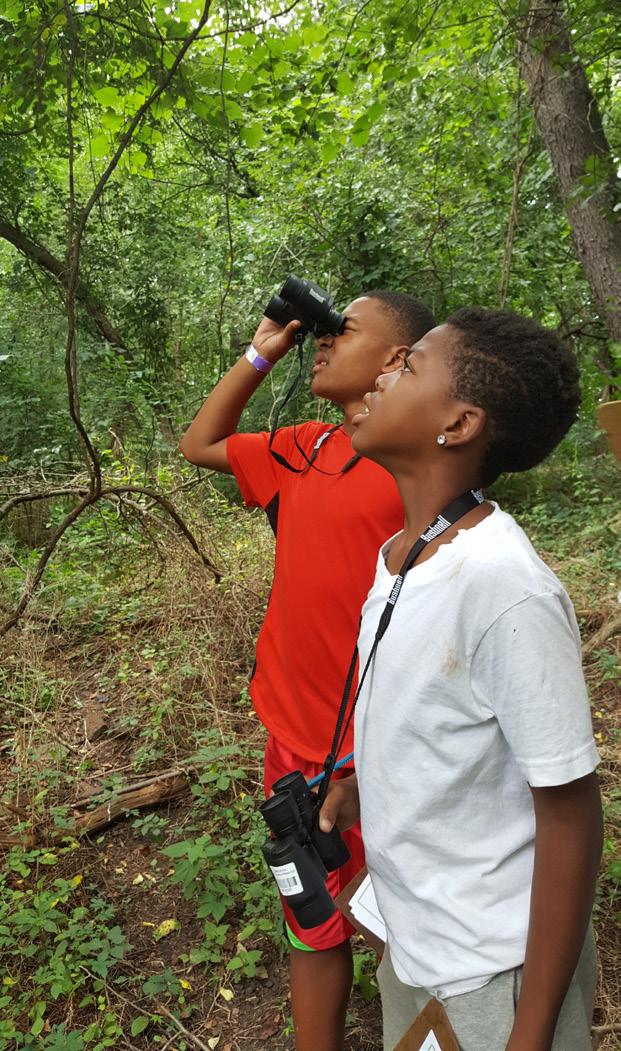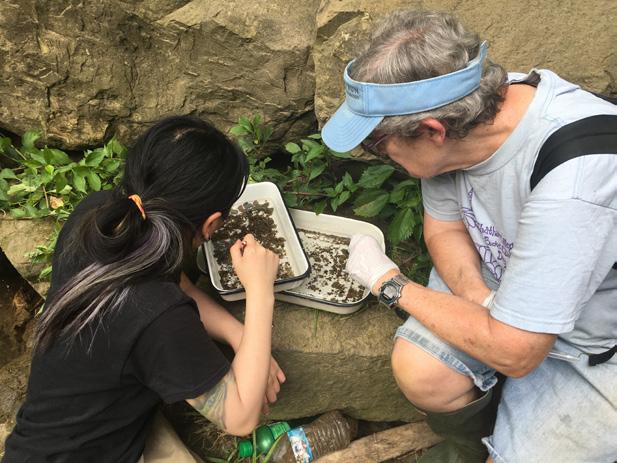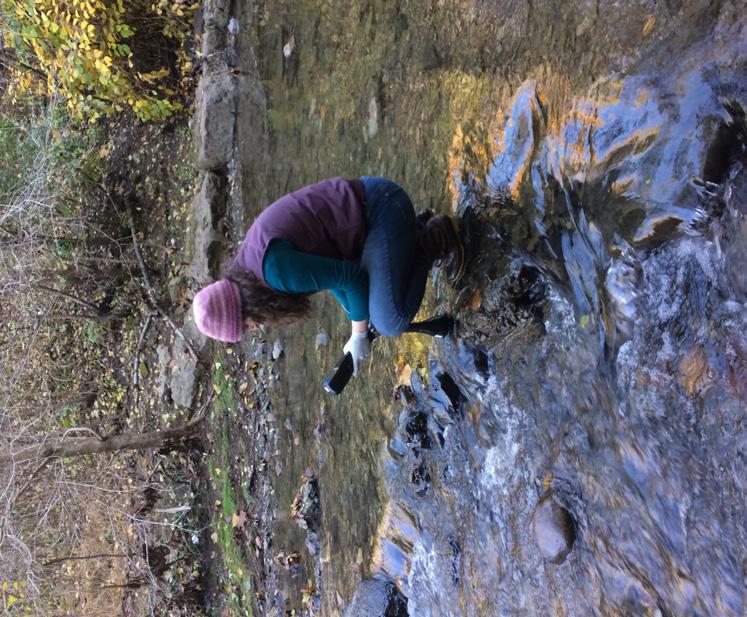
3 minute read
Our Work
Assistant Director Mike Hiller leading a group of volunteers on a stream cleanup in Frick Park.
Where we’ve been In the 2014-16 strategic plan, the big picture goal was to get the sewage out of the Nine Mile Run stream. This goal led us to focus on the combined sewer section of our sewershed (primarily City of Pittsburgh) and was the genesis of the Rosedale Runoff Reduction Project (RRRP). This work is still important, and has carried through both the 2017-19 plan and the 2020-23 plan. In the 2017-2019 strategic plan, our two overarching goals were to maintain our impact in the Nine Mile Run watershed and to leverage our experience to expand regionally and support efforts to improve and steward regional watersheds and regional water quality. The restored stream suffers from the ill effects of excessive stormwater runoff, including both sewer overflows and the extreme volume and velocity of stormwater flows during every major rain event. Over time this has resulted in serious damage to some portions of the restored stream. In 2009, and again between 2015-2018, we raised money to complete needed repairs – more than $50,000 each time. The increase in the amount and intensity of rain guarantees that future repairs will be needed. But it is more difficult to find the needed funds each time. Adding green infrastructure in the upper shed will reduce the volume of stormwater reaching the stream and the need for costly repairs. This will be a major focus of this strategic plan.
Advertisement
Where we’re going The 2020-23 plan continues the work of these previous plans, but with a deliberate re-focusing on the impacts of the MS4 systems and the needs of those communities in the watershed. The nature of the regulatory requirements governing MS4s leads MS4 communities to focus on gray solutions - like lining sewer pipes - to keep stormwater and ground water out of the sanitary system. Currently, they ignore the impact of stormwater flowing out of the storm sewer system on the water quality of receiving streams. Taking a more holistic view, we recognize that eliminating combined sewer overflows (CSOs) and sanitary sewer overflows (SSOs), while important to water quality, will not alone achieve the level of water quality we all desire. Stormwater runoff throughout the region must be addressed, particularly in separated communities. This focus on MS4 communities fits well with our history, experience, expertise, and existing grant commitments. Moreover, since much of Allegheny County, outside the City of Pittsburgh, is comprised of MS4 communities, developing sustainable solutions in these communities will make an important contribution to the regional stormwater conversation. We will implement stormwater projects in the upper shed of Nine Mile Run, based on the Watershed Hydrology Report completed in 2019, demonstrating the value of GSI for water quality and flood reduction in separated communities and protecting the restoration area. We will continue our work on the Rosedale Runoff Reduction Project, which reduces sewage entering Nine Mile Run, moving into the next phase of design and implementation. Because these projects intersect with PWSA’s A42 sewershed, which is a priority sewershed, we will use this as the basis for engaging with the PWSA planning process. We will refocus our efforts on the under-resourced MS4 communities in our shed, continuing our work from the NMR Stormwater Partnership. Where appropriate we will leverage these resources to assist neighboring MS4 sheds, advocating for green solutions in separated communities that can address both water quality and flooding. We will also take a holistic approach that addresses climate change and environmental justice. Based on our prior maintenance and implementation work with StormWorks and Landforce, we will make the case that GSI can be maintained and functional long term, looking at the links between design and long term maintenance costs, and continuing to advocate regionally for systemic and holistic stormwater solutions.
Children from Hosanna House Summer Camp looking for birds at the Sherwood Events Center.


Volunteers sampling for macroinvertebrates, a key indicator of stream health.

Nine Mile Run staff member monitoring water quality in Nine Mile Run.



